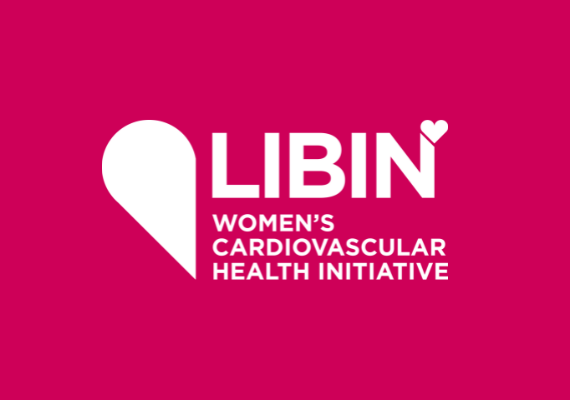Heart disease isn’t just a concern for men. It claims the life of one in five Canadian women – one every 16 minutes.
Most women are aware that heart disease is serious, but they may not be aware of their personal risk. Heart disease is the leading cause of premature death in Canada: up to five times as many women die of heart disease than of breast cancer.
Women are under-diagnosed and under-treated when it comes to their heart health. They are also largely unaware that they may be at risk and can even miss symptoms. A report published in 2023 by Heart & Stroke found half of women who experience heart attack have their symptoms go unrecognized.
Women are also less likely than men to get the treatments and medications they need in a timely manner following a heart attack.
Why?
- Heart attacks are often depicted as chest-clutching pain, but although, like men, women also typically experience pain during a heart attack, they often describe it differently.
- Diagnostic tests may miss heart disease or a heart attack in women because the tests were developed on men.
- There is a persistent gap in scientific knowledge when it comes to women’s cardiovascular health because, historically, research largely left out women.
The good news is that you have the power to reduce your risk of cardiovascular disease. Read on to learn more about the unique risks that women face and what you can do to reduce your risk factors.
Why do women have different risk factors for heart disease?
Besides tending to less recognizable symptoms of heart attack, women face other unique risks during their lifetime. The following represent some of the key gender-specific challenges for women:

Heart Attack Warning Signs for Women
Half of women who experience heart attack have their symptoms go unrecognized. Heart attacks and other cardiovascular diseases often go undetected in women because their symptoms can differ from men’s.
The most commonly reported symptoms in women are:
- Chest pain or discomfort (for example, pressure, tightness or burning)
- Pain in the jaw, neck, arm or back
- Abnormal excessive sweating
- Shortness of breath
- Stomach pain or discomfort, or feelings of nausea or indigestion
Other accompanying or associated symptoms include:
- Unusual weakness or fatigue
- Back, shoulder or right arm pain
- Sleep disturbance
- Dizziness or lightheadness
- Fast or irregular heartbeat
If you feel that something is not right, seek medical attention immediately.
Lichtman JH, et al. Circulation. 2018;137:781-790

Get regular physical activity
Reduce sedentary time and get at least 150 minutes of moderate to vigorous exercise each week. Learn more about Canada's 24-Hour Movement Guidelines for Adults here.

Sleep well
If you are between 18-64, you need 7-9 hours of good quality sleep. Over 64, you should aim for 7-8 hours. Consistent bed and wake up times are also key. Learn more about developing better sleep hygiene here.

Don’t smoke
Cigarette smoking greatly increases your risk for developing heart disease. If you currently smoke, visit this link to learn more on how you can become tobacco free.

Choose healthy food & drinks
Limit sodium, sugar and alcohol. Eat fresh fruits and vegetables and foods low in saturated and transfats. Choose water as your beverage of choice. Learn more about how you can create a more heart-healthy diet here.

Reduce stress
If stress happens too often or lasts too long, it can have negative effects on both your physical and emotional health. Learn more about ways to reduce stress here

Talk to your doctor
Making lifestyle changes can be overwhelming and it can be difficult to know where to start. As a first step, talk to your doctor about your cardiovascular risks and how to lower them. Learn more here.

Let's Talk Cholesterol
Unhealthy cholesterol levels are a major risk factor for heart attack and stroke. Improving these levels reduces your chance of having a heart attack or stroke.

It's Time to Transform Women's Cardiovascular Health
Join us in raising awareness, advocating for change and taking action. We can't do it alone. We need the support of all Albertans to champion women's cardiovascular health. Every contribution, big or small, makes a difference.
Her Heart Matters
Watch a series of educational videos from the Canadian Women’s Heart Health Alliance. These videos highlight a variety of topics relating to women’s heart and brain health.

